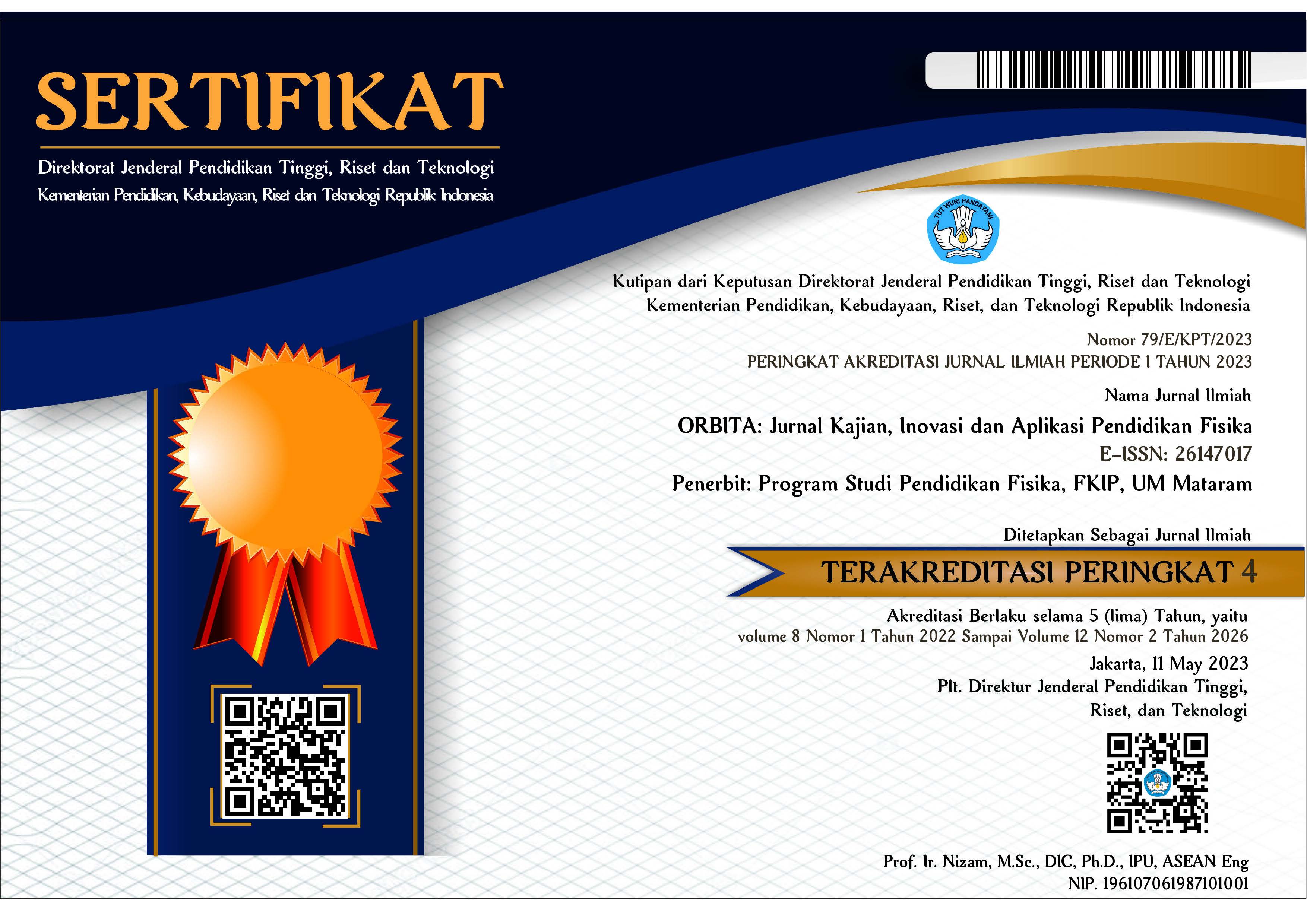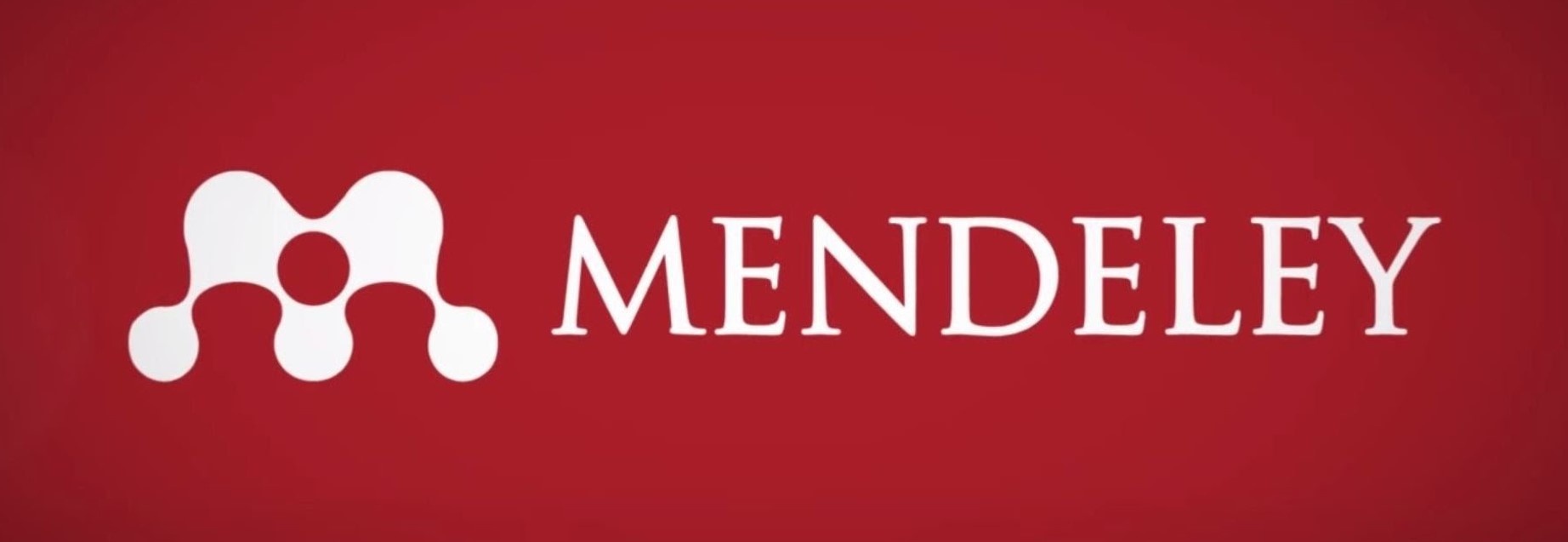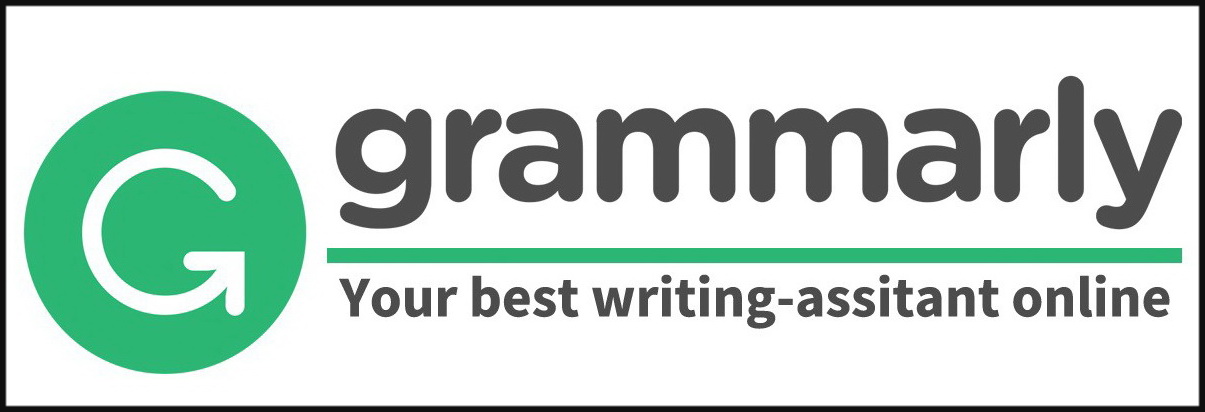ANALISIS KEBUTUHAN GURU SMP MENGENAI METODE PEMBELAJARAN FLIPPED CLASSROOM
Abstract
ABSTRAK
Perkembangan teknologi yang merambah dalam dunia pendidikan telah banyak ditandai dengan adanya inovasi-inovasi terbarukan yang dapat menunjang proses pembelajaran. Salah satunya adalah dengan adanya inovasi dalam pembuatan metode pembelajaran. Guru harus bisa melakukan suatu inovasi pembelajaran karerna, guru memiliki peranan sangat strategis dalam proses pembelajaran. Pembelajaran IPA di SMP wilayah Jadebotabek khususnya mata pelajaran Fisika masih mengggunakan metode ceramah, memberikan catatan, memberikan latihan soal hal ini dirasa kurang menarik dan sering membosankan karena kurangnya inovasi dalam metode pembelajaran. Tujuan dari penelitian ini untuk melakukan analisis kebutuhan dan melihat peran guru dalam mengembangkan metode pembelajaran IPA yaitu menggunakan metode Flipped Classroom. Metode yang digunakan metode penelitian deskriptif kualitatif yaitu dengan cara melakukan analisis kebutuhan. Data penelitian dikumpulkan melalui wawancara, dan penyebaran angket. Angket analisis kebutuhan diberikan kepada Guru IPA di SMP wilayah Jawa Tengah. Dari hasil penelitian diperoleh bahwa pengembangan metode pembelajaran Flipped Classroom perlu dilakukan di SMP wilayah Jawa Tengah. Hasil lainnya, guru juga menginginkan adanya pelatihan tentang penerapan metode pembelajaran Flipped Classroom untuk meningkatkan kualitas metode pembelajaran.
Kata kunci: kebutuhan guru; metode pembelajaran; flipped classroom.
ABSTRACT
The development of technology that has penetrated into the world of education has been marked by the existence of renewable innovations that can support the learning process. One of them is the innovation in making learning methods. Teachers must be able to carry out a learning innovation because teachers have a very strategic role in the learning process. Science learning at Junior high school in Central Java area, especially Physics subjects, still uses method of lectures, giving notes, giving exercises, this is deemed less interesting and often boring due to the lack of innovation in learning methods. The purpose of this study is to conduct a need assessment and see the role of the teacher in developing science learning model usuing Flipped Classroom. The research method used is descriptive qualitative research method that is by way of need assessment by conducting interviews questionnaire and direct observation. A needs analysis questionnaire was given to the science teacher at Junior high school in Jawa Tengah area. From the research results, it was found that the development of the Flipped Classroom learning method needed to be carried out at Junior high school in Jawa Tengah area. The other result, teachers at school want training on the application of the Flipped Classroom learning method to improve the quality of learning methods.
Keywords: teacher needs; learning methods; flipped classroom.
Keywords
Full Text:
PDFReferences
Abidin, M. (2019). Model Pembelajaran Flipped Classroom sebagai Upaya Peningkatan Kemampuan Penguasaan Rumus Transformasi Geometri. Journal on Pedagogical Mathematics, 1(2), 49–60.
Altemueller, L., & Lindquist, C. (2017). Flipped classroom instruction for inclusive learning. British Journal of Special Education, 44(3), 341–358.
Angin, R. Z. P. (2020). Penerapan STEM Pada Pembelajaran IPA Materi Bioteknologi. Prosiding Seminar Nasional Pendidikan Biologi.
Astra, I. M., & Khumaeroh, S. I. (2019). The effect of flipped classroom model on student’s physics learning outcome in work and energy concept. Journal of Physics: Conference Series, 1318(1), 12070. IOP Publishing.
Astuti, I. A. D., Bhakti, Y. B., Sumarni, R. A., Sulisworo, D., & Toifur, M. (2019). The implementation of flipped classroom models to increase self-reliance and motivation of student learning. International Journal of Scientific and Technology Research, 8(10), 3635–3639.
Azmi, R. A., & Rukun, K. (2020). Analisis Kebutuhan Pengembangan Media Pembelajaran Berbasis Web Mata Pelajaran Administrasi Infrastruktur Jaringan. Jurnal Imiah Pendidikan Dan …, 4, 303–314.
Bhakti, Y. B., Astuti, I. A. D., Sumarni, R. A., Sulisworo, D., & Toifur, M. (2019). Flipped classroom as a millennial teaching model. Indonesian Review of Physics, 2(1), 22–27.
Botelho, M. G., Gao, X., & Jagannathan, N. (2019). A qualitative analysis of students’ perceptions of videos to support learning in a psychomotor skills course. European Journal of Dental Education, 23(1), 20–27.
Budiman, H. (2017). Peran teknologi informasi dan komunikasi dalam pendidikan. Al-Tadzkiyyah: Jurnal Pendidikan Islam, 8(1), 31–43.
Cai, S., Liu, C., Wang, T., Liu, E., & Liang, J. (2020). Effects of learning physics using Augmented Reality on students’ self‐efficacy and conceptions of learning. British Journal of Educational Technology.
Cheng, X., Ka Ho Lee, K., Chang, E. Y., & Yang, X. (2017). The “flipped classroom” approach: Stimulating positive learning attitudes and improving mastery of histology among medical students. Anatomical Sciences Education, 10(4), 317–327.
Damayanti, H. N., & Sutama, S. (2016). Efektivitas Flipped Classroom Terhadap Sikap Dan Ketrampilan Belajar Matematika Di Smk. Manajemen Pendidikan, 11(1), 2. https://doi.org/10.23917/jmp.v11i1.1799
Darmadi, H. (2016). Tugas, Peran, Kompetensi, dan Tanggung Jawab Menjadi Guru Profesional. Edukasi: Jurnal Pendidikan, 13(2), 161–174.
Doyan, A., Susilawati, S., Bahri, S., Muhlis, M., & Artayasa, I. P. (2019). Pelatihan Pemantapan Konsep Materi Fisika dan Pengukuran Bagi Guru IPA di SMPN 9 Mataram. Jurnal Pengabdian Magister Pendidikan IPA, 2(2).
Effendi, D., & Wahidy, A. (2019). Pemanfaatan Teknologi dalam Proses Pembelajaran Menuju Pembelajaran Abad 21. PROSIDING SEMINAR NASIONAL PROGRAM PASCASARJANA UNIVERSITAS PGRI PALEMBANG.
Fitriani, O., Susilawati, S., & Linda, R. (2020). Development of Interactive Learning Media using Autoplay Studio 8 for Hydrocarbon Material of Class XI Senior High School. Journal of Educational Sciences, 4(2), 296–308.
Gunawan, G., Harjono, A., Hermansyah, H., & Herayanti, L. (2019). GUIDED INQUIRY MODEL THROUGH VIRTUAL LABORATORY TO ENHANCE STUDENTS’SCIENCE PROCESS SKILLS ON HEAT CONCEPT. Jurnal Cakrawala Pendidikan, 38(2), 259–268.
Husaini, M. (2017). Pemanfaatan teknologi informasi dalam bidang pendidikan (e-education). MIKROTIK: Jurnal Manajemen Informatika, 2(1).
Ichsan, I. Z., Sigit, D. V., & Miarsyah, M. (2019). Environmental learning based on higher order thinking skills: a needs assessment. International Journal for Educational and Vocational Studies, 1(1), 21–24.
Ismiati, I., Sarwi, S., & Marwoto, P. (2020). Pola Dan Kemampuan Pemecahan Masalah Peserta Didik Melalui Pembelajaran Flipped Classroom Berbasis Proyek. ORBITA: Jurnal Kajian, Inovasi Dan Aplikasi Pendidikan Fisika, 6(1), 115. https://doi.org/10.31764/orbita.v6i1.1847
Jensen, J. L., Holt, E. A., Sowards, J. B., Ogden, T. H., & West, R. E. (2018). Investigating strategies for pre-class content learning in a flipped classroom. Journal of Science Education and Technology, 27(6), 523–535.
Kawuri, M. Y. R. T., Ishafit, I., & Fayanto, S. (2019). Efforts to improve the learning activity and learning outcomes of physics students with using a problem-based learning model. IJIS Edu: Indonesian Journal of Integrated Science Education, 1(2), 105–114.
Kumalasani, M. P. (2018). Kepraktisan penggunaan multimedia interaktif pada pembelajaran tematik kelas IV SD. Jurnal Bidang Pendidikan Dasar, 2(1A), 1–11.
Kurnia, Y. (2018). Penilaian Kinerja Guru Menggunakan Metode Topsis. Journal Scientific and Applied Informatics, 1(3), 70–75.
Lewis, C. E., Chen, D. C., & Relan, A. (2018). Implementation of a flipped classroom approach to promote active learning in the third-year surgery clerkship. The American Journal of Surgery, 215(2), 298–303.
Lockyer, J., Ward, R., & Toews, J. (2005). Twelve tips for effective short course design. Medical Teacher, 27(5), 392–395. https://doi.org/10.1080/01421590500086888
Muhson, A. (2010). Pengembangan Media Pembelajaran Berbasis Teknologi Informasi. Jurnal Pendidikan Akuntansi Indonesia, 8(2). https://doi.org/10.21831/jpai.v8i2.949
Nahdi, D. S., Rasyid, A., & Cahyaningsih, U. (2020). MENINGKATKAN KOMPETENSI PROFESIONAL GURU MELALUI PENGEMBANGAN MEDIA PEMBELAJARAN BERBASIS TEKNOLOGI INFORMASI. BERNAS: Jurnal Pengabdian Kepada Masyarakat, 1(2), 76–81.
Nasrulloh, I., & Ismail, A. (2018). Analisis Kebutuhan Pembelajaran Berbasis Ict. Jurnal Petik, 3(1), 28. https://doi.org/10.31980/jpetik.v3i1.355
Nicol, A. A. M., Owens, S. M., Le Coze, S. S. C. L., MacIntyre, A., & Eastwood, C. (2018). Comparison of high-technology active learning and low-technology active learning classrooms. Active Learning in Higher Education, 19(3), 253–265.
Öztürk, M. (2019). An Evaluation of an Innovative In-Service Teacher Training Model in Turkey. International Journal of Higher Education, 8(1), 23–36.
Santikarn, B., & Wichadee, S. (2018). Flipping the classroom for English language learners: A study of learning performance and perceptions. International Journal of Emerging Technologies in Learning (IJET), 13(09), 123–135.
Saputro, A. D., Irwanto, Sri Atun, & Wilujeng, I. (2019). The impact of problem solving instruction on academic achievement and science process skills among prospective elementary teachers. Elementary Education Online, 18(2), 496–507. https://doi.org/10.17051/ilkonline.2019.561896
Setiyani, T. W., Churiyah, M., & Arief, M. (2019). Enhancing the Students’ Critical Thinking Ability and Learning Outcome Through Poe Learning Model. Jurnal Ad’ministrare, 6(1), 61–72.
Suja, I. W. (2011). Analisis Kebutuhan Pengembangan Buku Ajar Sains SD Bermuatan Pedagogi Budaya Bali. Jurnal Pendidikan Dan Pengajaran, 44(1–3), 84–92.
Sulistiyo, S. (2020). Peran Guru Dalam Meningkatkan Motivasi Pembelajaran Matematika Sekolah Dasar Pada Siswa Kelas Tinggi. At-Ta’lim: Kajian Pendidikan Agama Islam, 2(1), 104–113.
Suyatna, A. (2019). Future physics learning materials based on STEM education: Analysis of teachers and students perceptions. Journal of Physics: Conference Series, 1155(1), 12021. IOP Publishing.
Tekege, M. (2017). Pemanfaatan Teknologi Informasi dan Komunikasi dalam Pembelajaran SMA YPPGI Nabire. Jurnal FATEKSA: Jurnal Teknologi Dan Rekayasa, 2(1).
Tharayil, S., Borrego, M., Prince, M., Nguyen, K. A., Shekhar, P., Finelli, C. J., & Waters, C. (2018). Strategies to mitigate student resistance to active learning. International Journal of STEM Education, 5(1), 7.
Tuarez, M. A. V., Delgado, M. A. C., Delgado, R. I. Z., & Romero, J. E. V. (2019). Approaches to evaluation assumed by teachers on teaching process-learning. International Journal of Social Sciences and Humanities, 3(3), 60–70.
Utomo, U. (2013). Analisis Kebutuhan Guru Seni Musik Dalam Konteks Pelaksanaan Pembelajaran Berbasis Action Learning Di Sekolah. Harmonia - Journal of Arts Research and Education, 13(2), 110–119. https://doi.org/10.15294/harmonia.v13i2.2777
Verloigne, M., Ridgers, N. D., De Bourdeaudhuij, I., & Cardon, G. (2018). Effect and process evaluation of implementing standing desks in primary and secondary schools in Belgium: a cluster-randomised controlled trial. International Journal of Behavioral Nutrition and Physical Activity, 15(1), 94.
Wei, X., Cheng, I.-L., Chen, N.-S., Yang, X., Liu, Y., Dong, Y., & Zhai, X. (2020). Effect of the flipped classroom on the mathematics performance of middle school students. Educational Technology Research and Development, 1–24.
Wijaya, E. Y., Sudjimat, D. A., Nyoto, A., & Malang, U. N. (2016). Transformasi pendidikan abad 21 sebagai tuntutan pengembangan sumber daya manusia di era global. Prosiding Seminar Nasional Pendidikan Matematika, 1(26), 263–278.
DOI: https://doi.org/10.31764/orbita.v6i2.3168
Refbacks
- There are currently no refbacks.

This work is licensed under a Creative Commons Attribution-ShareAlike 4.0 International License.
______________________________________________________
ORBITA: Jurnal Pendidikan dan Ilmu Fisika
p-ISSN 2460-9587 || e-ISSN 2614-7017
This work is licensed under a Creative Commons Attribution-ShareAlike 4.0 International License.
EDITORIAL OFFICE:


























